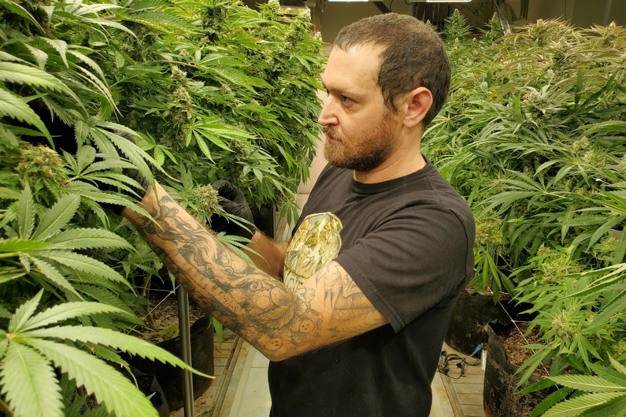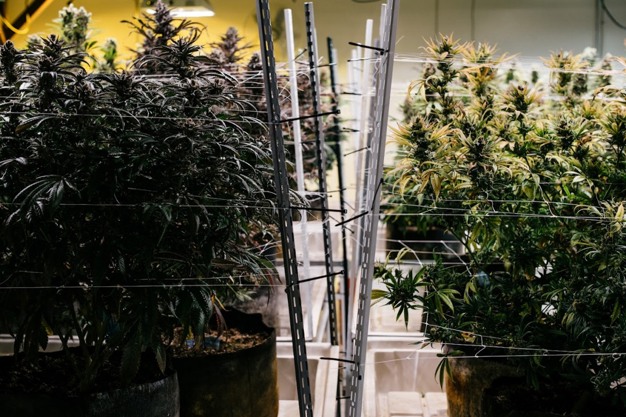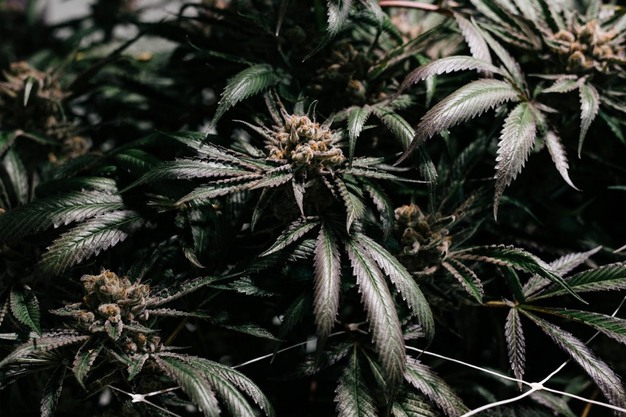"I've been working in the cannabis industry for 14 years. I believe that if you do it right, there are still great opportunities for new companies to enter the market," says Danny Murr-Sloat, Founder of AlpinStash Genetics & Consulting. Danny started working in the cannabis industry in 2010. "Colorado had legalized cannabis for medical use. So I got a job at a dispensary where I soon moved over to working for its grow."
At that point, Danny describes the market as still being the Wild West. "It was transitioning from people growing in their basements to a commercial market. When I realized that the company wasn't a great fit for me, I started a craft cannabis grow with a friend in 2013. Because of my passion for helping other growers, I started my consulting business in 2019: AlpinStash Genetics & Consulting. Three years later, SNDL hired me for a consulting job. I left that job with a job offer. So my family and I moved to Canada and I became the Director of Cultivation for SNDL. Now, I'm back where it all started: in Colorado, focused on breeding and consulting," Danny says. With all this experience, from small-scale to large-scale, Danny is passionate about sharing his cultivation knowledge.
Danny Murr-Sloat (All photo credits: AlpinStash)
Developments in genetics
Danny started to breed because he needed genetics that could perform on a commercial scale. "I needed varieties that ticked all the boxes: performance, potency, unique terpene profile, bag appeal. But also disease resistance and good grow structure. The last thing you want in a commercial facility, is plants that grow really tall or really short. Especially if you're limited in space, you've got to make do with what you have."
As a breeder, Danny has seen developments in the genetics space over the years. "When legalization and testing started in Colorado, the consumer went after high THC. It was probably perceived as being the best bang for your buck. But the THC number doesn't equate potency and experience. More and more consumers are now realizing that and are getting educated about the 'entourage effect': the experience is created by the combination of all the cannabinoids, terpenes and flavonoids. Instead of just looking at THC, consumers are looking for the full experience," Danny explains.
Another development is the rise in cannabis tissue culture. "Tissue culture offers a number of strengths. I think it's going to be the future of keeping genetics clean and of moving genetics between facilities. Importantly, it also offers the opportunity to clean genetics. The very tip of the plant is called the meristem, which is not yet connected to the vascular system. If there are any bacteria or diseases present within the vascular system that haven't affected the tip of the plant yet, tissue culture labs can take a millimeter-sized piece of the tip of the plant and begin growing from that."
Yet Danny explains that there are some downsides to tissue culture as well. "First of all, it's expensive. Also, there are thousands of different cannabis cultivars, and every cultivar is a bit different in tissue culture. For some cultivars, it may take a really long time and a lot of effort and tweaking to get them initiated in tissue culture."
Utilizing what you've got
When it comes to Danny's cultivation services, he notices that growers benefit especially from having a solid IPM program. "Especially in a commercial setting, preventing and managing pests and diseases is essential. But the regulations can make this challenging. In Colorado, growers can use one set of products as pesticides. So I've been helping many growers to create a solid IPM program to help them eliminate and manage pests and diseases, while staying compliant."
Another important one is simply utilizing what you've got. "It's easy for someone to come into the facility and say that you need the newest lighting and HVAC. Yet you've already invested your money into your facility. So I work with clients to maximize what they already have in place, utilizing the full potential of the footprint and equipment that's already available."
Staying positive
Being selective with investments is especially important when the market is challenging. "When a state or country legalizes, the demand is through the roof and the supply is minimal. The first wave of companies does well. By the time other companies get licensed and have harvested their first crops, the market may have changed quite drastically. The market that once looked like a great opportunity, is now dealing with oversupply and dropping prices."
While this is something that maturing markets in North America are currently dealing with, Danny stays positive. "It's no secret that the cannabis industry is challenging to be in. Yet I still believe there is room left for new companies to enter. To be successful, you have to do things right from the start. You need to deliver a consistent product and be really cost-conscious. Finding the right people is important, and experience with large-scale cultivation is key. Overall, if you set up your company correctly from the start, have the right people, the right SOPs, and the right genetics; then I think there's room to be successful."
For more information:
AlpinStash Genetics & Consulting
www.alpinstash.com
